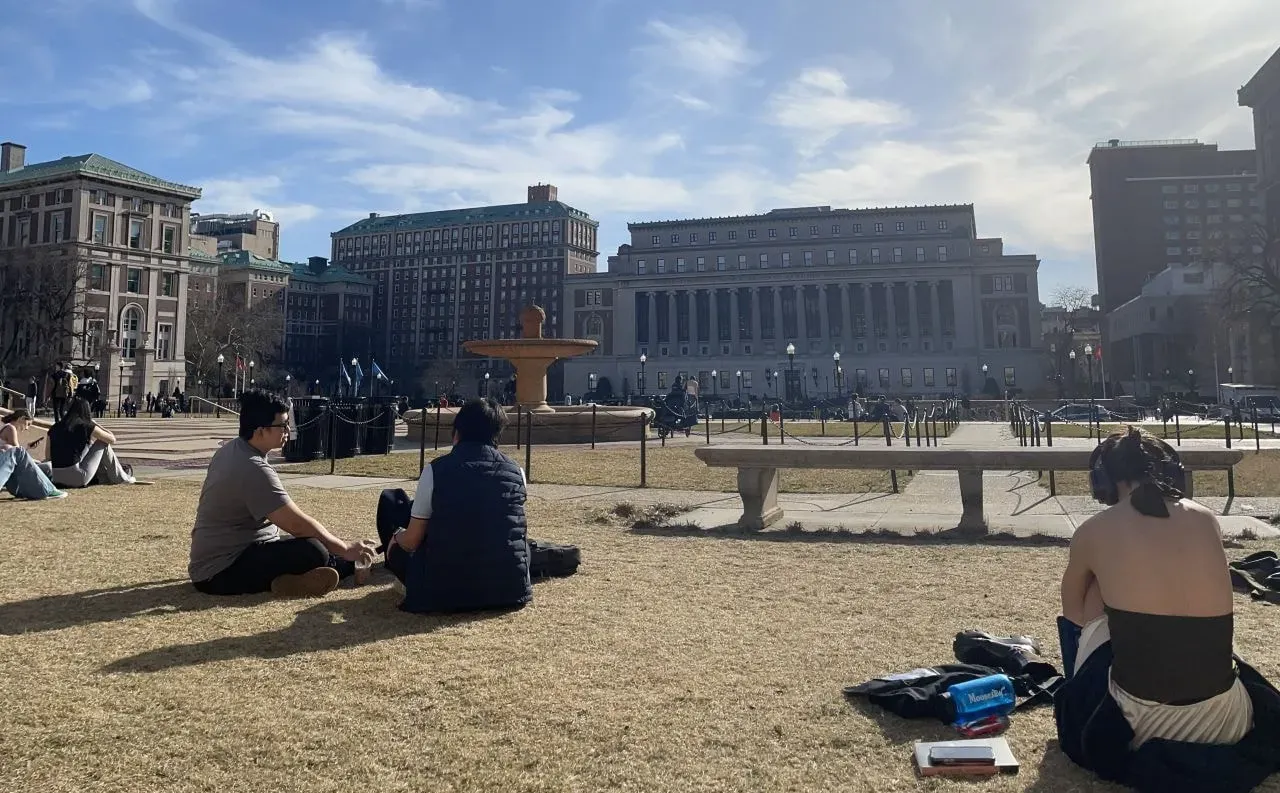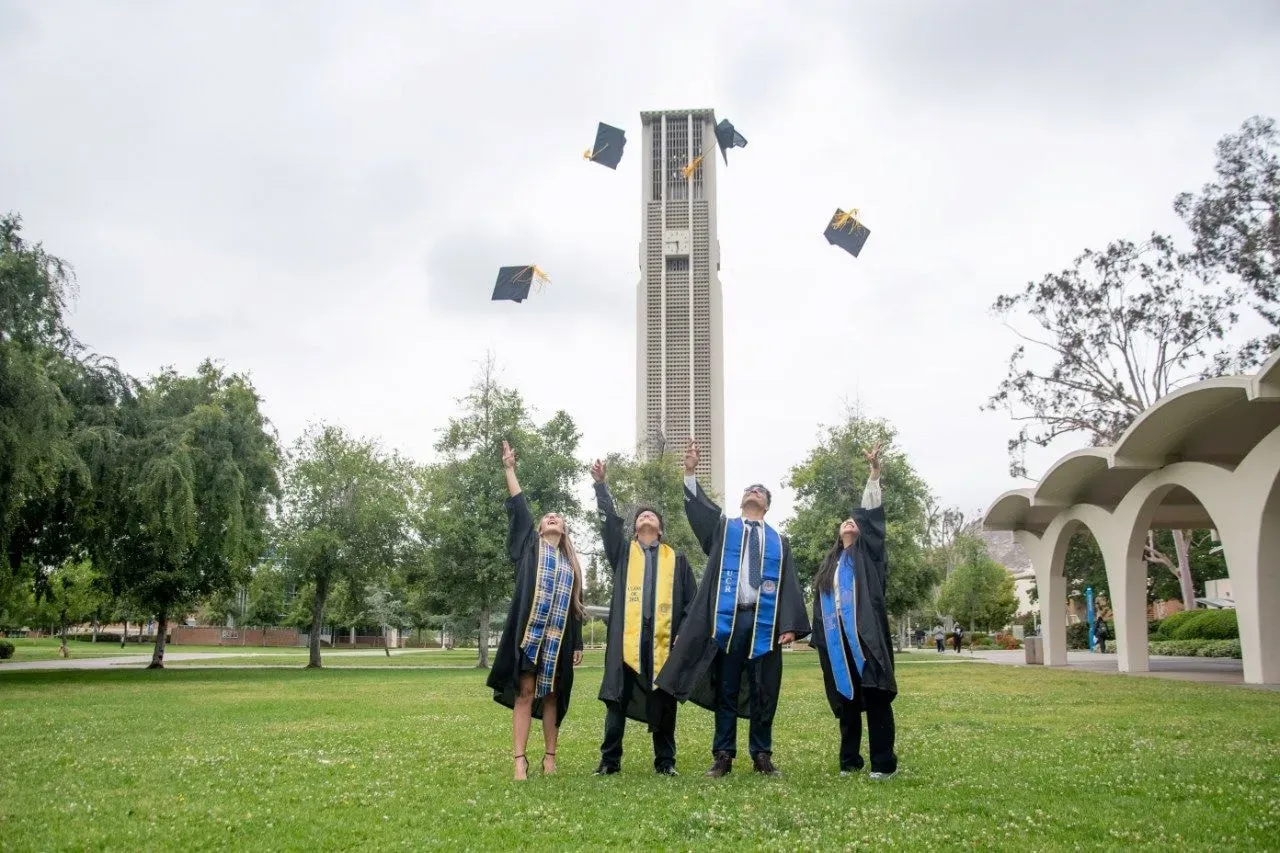How Long Is College in 2025?


Are you thinking about the timeline to earn an associate's, bachelor's, master's, or doctoral degree? College offers various programs and degrees tailored to different career paths. However, the length of each can vary significantly based on factors such as the type of degree, institutional policies, and individual circumstances. Understanding the duration of degree programs is important for planning your education, class schedule, and personal life.
The standard duration for a bachelor's degree in the U.S. is four years, typically divided into an academic year on a semester system. For those with an associate's degree, transferring credits can shorten this time.
In this blog, I will cover the duration of degrees, the types of programs available, and how transferring credits from an associate's degree can speed up the time required to graduate.
Learn from the experts. Taking advantage of scholarships is the way to secure your finances as a student. Apply now!
Duration of Different College Degree Programs
College degree programs vary in length and depend on how many semesters a student enrolls. The semester system starts in early September and shapes the academic calendar with shorter classes during the summer.
The school year and academic year begin according to either the semester or quarter system (Fall, *Winter, Spring, or Summer). The quarter system divides the year into four terms, impacting the duration and scheduling of classes.
*Only some colleges offer credit hours during the winter term, a shorter version of the academic Spring semester that typically begins in January.
The duration of various academic programs generally aligns with the following timelines, assuming a full course load and no interruptions:
- Diploma Programs: Typically take 1-2 years to complete.
- Associate Degrees: Usually require about 2 years of study.
- Bachelor’s Degrees: Generally take 4 years to complete.
- Master’s Degrees: Typically require an additional 1-2 years beyond a bachelor's degree. If you're thinking of pursuing a master's, apply for graduate school scholarships here!
- Doctorate Degrees: Often require a total of 7-11 years of study, which includes 4 years for a bachelor’s degree, 1-2 years for a master’s degree, and 3-5 years for the doctoral program itself.
These timelines can vary depending on the specific program, institution, and student circumstances.
Create Your Free Profile to Apply for Scholarships Today!
Course Completion Times Unique to Specific Programs
STEM Bachelor's Degree Programs
STEM degree programs (Science, Technology, Engineering, Mathematics) often offer various lengths of study to accommodate diverse student needs and career goals.
Flexibility in Program Length
Many universities provide flexible options within STEM fields. For instance, some institutions allow students to opt for part-time study or take fewer credit hours per college semester, extending the duration but providing a manageable workload. Conversely, students who prefer a faster track might enroll in summer classes or increase their fall and spring semester course load.
Nursing is one field in which program duration can vary drastically. There are one-year programs to add to an existing bachelor's degree, or students can pursue more detailed master's programs. In any case, if you're seeking an occupation as a nurse, apply for these nursing scholarships to get ahead of the curve.
Get Matched to Thousands of Scholarships
Create your Bold.org profile to access thousands of exclusive scholarships, available only on Bold.org.
Create Free ProfileAccelerated STEM Programs
Some universities offer accelerated STEM programs designed to shorten the traditional four-year bachelor's degree timeline. These programs often involve intensive coursework and may include summer courses.
For example, a three-year engineering program could enable students to enter the workforce sooner. This approach is ideal for motivated students who can handle a rigorous academic calendar by taking more than four to five courses in the fall and spring semesters. Something that can become overwhelming but still doable with great time management (I have done it, and here are some studying techniques that may help you).
Duration Variations in Humanities Degree Programs
The duration of humanities degree programs can vary significantly depending on the institution and specific program structure. Unlike STEM degrees, which often follow more rigid college life and structured pathways, humanities programs tend to offer greater flexibility throughout the academic year.
Key Points:
- Variation Across Universities: Different universities have diverse duration requirements for their humanities programs. For instance:
- At Loyola University Chicago, students have the option to pursue either a traditional four-year bachelor's degree or an accelerated three-year program.
- Mount Saint Mary’s University also provides similar flexibility with options to expedite the degree completion process.
- Mercer University allows students to customize their course load, potentially shortening or extending the time required to graduate.
- Program-Specific Factors: Humanities degrees, which encompass fields such as literature, history, philosophy, and art, often allow for more elective courses. This flexibility enables students to pursue dual majors or minors without significantly prolonging their time in college experience.
Understanding these variations helps prospective students align their educational goals with the right program format. The duration of a humanities degree is not set in stone and can be adjusted based on personal circumstances and credit hours a student is taking.
At Bold.org, we offer a wide range of scholarships for college students by major, state, or academic year, which can significantly ease the financial burden of a B.A. degree. Apply today to reduce your college costs!

Factors Influencing the Time Taken to Earn a College Degree
Full-Time Education
Understanding how your choice between full-time and part-time education affects your college journey is crucial. Each path comes with its own set of benefits and challenges that can significantly impact your overall experience and the number of semesters you will need to obtain a bachelor's degree.
Benefits of Full-Time Education (Spring & Fall Semester):
- Quick Completion: In most universities, full-time students can typically complete a bachelor's degree in four years. Immersing yourself fully in the learning experience allows for a consistent pace, leading to timely graduation.
- In-Depth Learning: Being a full-time student in most colleges often means spending more time on campus, participating in extracurricular activities, and engaging deeply with course material.
- Networking Opportunities: Increased campus presence leads to enhanced networking opportunities with peers, professors, and potential employers.
Drawbacks of Full-Time Education:
- Financial Pressure: The cost of tuition and living expenses over a condensed period can affect well-being. Many students find it challenging to manage a college semester without taking on a part-time job, which can add stress.
- Intensive Workload: Managing a full course load requires excellent time management skills. The pressure to keep up with assignments, projects, and exams can be intense. This is why it is recommended that students take semester breaks every year.
To draw inspiration from real-life stories, consider how scholarships can alleviate some of these pressures. For instance, initiatives like Terry Crews' "Creative Courage" Scholarship provide much-needed financial support to students pursuing their passions.
Part-Time Education
Balancing college with other responsibilities often leads students to choose part-time education. This approach has its unique set of advantages and challenges:
Benefits of Part-Time Education:
- Flexibility: A part-time college student can balance a full-time job, family obligations, or other interests alongside their studies.
- Reduced Financial Strain: Students can spread tuition costs over a longer period, decreasing the immediate financial burden.
- Work Experience: Many part-time students work while they attend classes, gaining valuable experience that prepares students for a job upon graduation.

Challenges of Part-Time Education:
- Extended Duration: Typically, completing a bachelor's degree part-time takes longer than full-time study. It's essential to stay motivated over this extended period.
- Scheduling Conflicts: Balancing classes with work or personal life can lead to scheduling conflicts that may delay course completion.
- Limited Campus Engagement: Part-time students may miss out on certain exciting experiences and may not get the chance to spend time doing student life activities. A Part-time student often doesn't have as much free time as a full-time student and needs more mastery of time management.
There are a few reasons students might choose to study part-time instead of full-time. This is often the case with single moms, for example—which can be a daunting task. Apply for single-mom scholarships to help ease the financial burden of attending school.
Flexibility in Accelerated Programs and College Semester Credits:
Some universities offer accelerated options that allow full-time students to complete their degrees faster. By enrolling in summer sessions or taking heavier course loads each college semester, you might shave off an entire year from your study plan. However, this often requires forgoing traditional breaks such as fall break and winter break, as students need to continue their studies during these periods to maintain the accelerated pace.

Accelerating Your Degree: Transferring Credits
Transferring Previous College Credits
Assessing prior learning experiences can significantly impact the time it takes to earn a college degree. By evaluating previous college credits, you can determine if you're eligible for credit transfer, which may shorten your overall degree timeline. This process involves reviewing your past academic achievements to see if any courses you've completed match the requirements of your current program.
Steps to Evaluate and Transfer Credits:
- Gather Transcripts: Obtain official transcripts from all previously attended institutions.
- Consult Academic Advisors: Meet with an academic advisor at your current college to discuss potential credit transfers.
- Review Course Equivalencies: Compare the curriculum of previous courses with those required by your current program.
- Submit Transfer Requests: Complete any necessary paperwork or forms required by your institution for transferring credits.
Things to Consider Before Transferring to a New College or University
Deciding to transfer to a different college or university is a significant step that can greatly impact students' academic journey.
Potential Effects of Changing Schools:
- Credit Transferability: Not all credits may smoothly transfer from one institution to another. Different colleges may have a specific college semester system that may not align with the coursework you've already completed. This misalignment could potentially extend how many classes you will need to earn a degree.
- Course Differences: Each university has its own unique set of courses and curriculum. When you transfer, you may find that some of the classes you've already taken don't match up with the required courses at your new school. This misalignment could result in needing to take additional classes and spending more time on your studies.

Tips for Overcoming Transfer Challenges:
To minimize these challenges and make the most of your transfer experience, consider taking these steps:
- Research Transfer Policies: Every college or university has its own set of rules and regulations when it comes to transferring credits. Before making a decision, take the time to carefully review and understand the courses and semester system of the institution you want to transfer to. This will give you an idea of which credits will likely transfer and how they will count towards your degree requirements.
- Consult with an Academic Advisor: Academic advisors are there to guide you through your educational journey. They can provide valuable insights into course alignment between institutions and suggest the best pathways for completing your degree in a timely manner.
- Plan Ahead: If you're considering transferring in the future, it's important to plan ahead and choose your courses wisely. Look for classes that are more likely to be accepted by potential transfer institutions by using resources like transfer guides or articulation agreements.
Additionally, for students aiming to reduce their financial burden while managing their studies, exploring scholarship opportunities can be highly beneficial. These opportunities provide financial aid and support for various educational pursuits.
For instance, actress and professional coder Lyndsey Scott offers a $10,000 scholarship for young coders on Bold.org. Similarly, MMA fighter Cat Zingano has announced a $10,000 scholarship on Bold.org to support students who have lost loved ones. These scholarships can alleviate some of the financial stress associated with pursuing higher education.

Frequently Asked Questions About How Long College Is
How do online degree programs compare in duration to traditional on-campus programs?
Online degree programs often offer more flexibility and can be completed faster or slower than traditional programs, depending on the student's pace and course availability.
What are the typical course loads required for part-time versus full-time students?
Full-time students typically take 12-18 credits per semester, while part-time students take fewer than 12 credits per semester.
How do dual majors or adding minors affect the duration of a degree program?
Pursuing dual majors or adding minors can extend the time required to graduate, depending on the overlap of required courses and the student's ability to handle a heavier course load.
Ready to start your college journey? Check out all our college recommendations to become a successful and debt-free student!